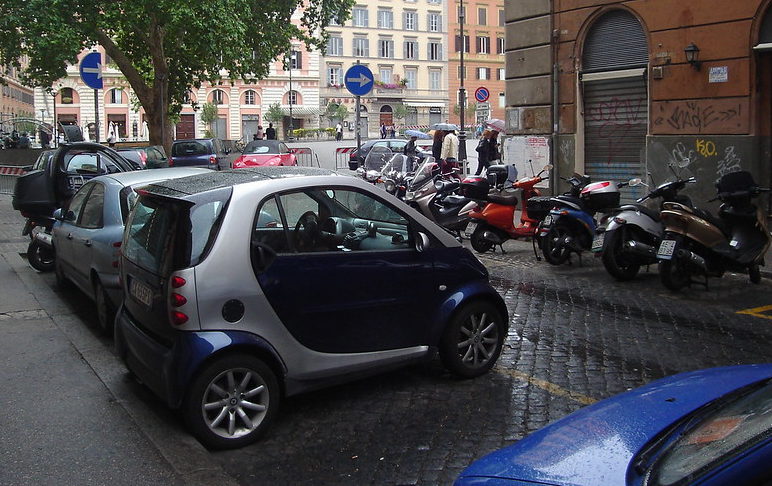
Photo: Yun Huang Yong (Flickr)
Second UK city plans parking levy for employers
26 January 2022
by Christopher Carey
Leicester City Council is consulting on proposals to introduce a new charge on workplace parking which it says could improve air quality, fund public transport projects and incentivise active travel.
The workplace parking levy (WPL) would see companies with more than ten parking spaces charged £550 (US$740) a year per space – with employers left to decide whether to absorb the cost or pass it on to staff.
It is estimated the scheme, set to be introduced next spring, could raise £450 million over the next decade to invest in a new fleet of electric buses, an expanded cycle network and infrastructure renovations.

Speaking to Cities Today, Adam Clarke, Leicester’s Deputy Mayor for Environment and Transport, said: “We’re currently in the middle of a 12-week consultation. Obviously, the outcome of that will determine the final timeline and trajectory as to where we’re going, but we expect the scheme to be fully operational by spring next year.”
Several UK cities, including Reading, Edinburgh, Glasgow, Cambridge, Bristol and the London boroughs of Hounslow and Camden, are currently examining the introduction of WPLs.
Nottingham is the only city in the UK to have introduced the levy, which has been running since 2012 and currently raises £9 million each year.
One study from Loughborough University found that 8.6 percent of commuters had switched from the car to more sustainable travel modes in part due to the levy.
Opposition
It is estimated that between 450 and 600 businesses in Leicester will be liable for the charge – approximately ten percent of all companies.
But the plans have drawn criticism from opposition politicians and business groups, with concerns the charge could hurt businesses and employees.
Automotive group the AA has said that when the WPL is passed on to employees, it becomes a flat-rate local tax that hurts lower-income workers disproportionately.
But Clarke maintains the benefits outweigh the potential negatives.
“We have a really strong offer of delivering a real transformation in the city over ten years, which would be many times more than the value of the income raised by the levy, if Nottingham is anything to go by.
“We’ve worked very closely with them [on the WPL], and have a very strong relationship with them.
“What they found is they were able to leverage hundreds of millions of pounds more [through grants] than they’ve actually leveraged through the levy in isolation.
“For us to deliver a citywide tram-like bus network that provides all the things most users want – subsidised fares, frequency, reliability and cleanliness – we know the WPL can help deliver that.”
Image: Yun Huang Yong (Flickr)









